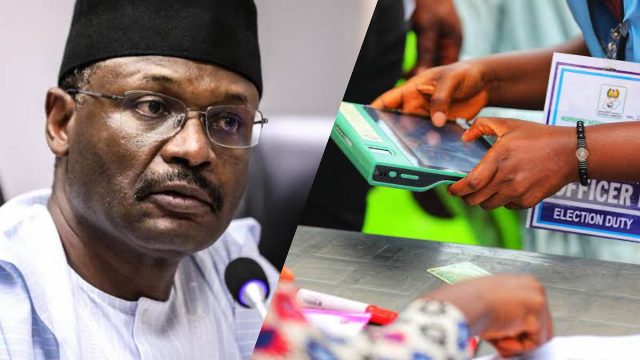A three-member panel of the Court of Appeal headed by Justice Joseph Ikyegh on Wednesday granted the Independent National Electoral Commission (INEC) the request to reconfigure the bimodal voter accreditation system (BVAS) machines for the governorship and state legislative elections holding on March 11 across the 36 states of the federation.
The machines were used for the 25 February presidential and national assembly elections across the country.
The panel, however, ordered the electoral body to upload the data on the BVAS machines to the back-end server and make certified true copies of the data to the respondents.
The court had earlier granted an order permitting the Peoples Democratic Party (PDP) presidential candidate, Mr. Atiku Abubakar and the Labour Party standard bearer, Mr. Peter Obi, to inspect the BVAS machines and other sensitive electoral materials.
Messrs Atiku and Obi who came second and third behind the president-elect, Mr. Bola Tinubu, of the All Progressives Congress (APC), had requested access to the electoral materials preparatory to filing their petitions to challenge the outcomes of the 25 presidential elections in court.
Apart from granting them access to the materials, the court had, in its ruling delivered on March 3, also restrained INEC from tampering with the BVAS machines pending the inspection to be conducted by the candidates.
However, INEC subsequently filed an ex parte application on March 4 urging the court to vary the ex parte order made in favour of the PDP and LP candidates.
The electoral umpire had asked the court to vary the order to allow it to reconfigure the BVAS machines for the 11 March governorship and state houses of assembly elections.
Counsel for INEC, Mr. Tanimu Inuwa, contended that the application became necessary following an order restraining it from tampering with the information embedded in the BVAS machines until the due inspection was conducted and certified.
He added that the commission would require sufficient time to reconfigure the BVAS needed to conduct the election that would take place on Saturday.
He told the court that INEC would upload from the back end.
In a unanimous decision on Wednesday, the panel held that preventing INEC from reconfiguring the BVAS would adversely affect the forthcoming governorship and state assembly elections.
It dismissed Obi’s objections against the request.
According to the court, allowing the objections by Obi and his party, would amount to “tying the hands of the Respondent, INEC”.
Dismissing objections by LP and Obi, the court held that the backup files on the server cannot be lost and that restraining INEC will affect the forthcoming governorship elections.
The court chided the applicants for repeating their request to be allowed to scan and make copies of the electoral materials in INEC’s possession stating that it amounted to an abuse of court process.
It noted that INEC had in an affidavit filed before the court, assured that the accreditation data contained in the BVAS could not be tampered with or lost.
It further stated that neither Obi nor LP filed a counter affidavit to challenge the argument in INEC’s affidavit.
The court, however ordered INEC to allow the Applicants to inspect and carry out digital forensic examination of all the electoral materials used in the conduct of the elections, as well as to avail them the Certified True Copy, of result of the physical inspection of the BVAS.




















































